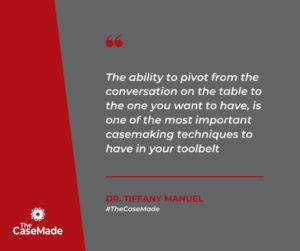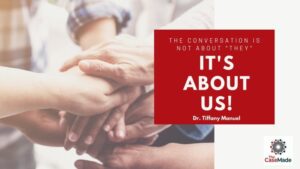Today, leaders across our country are having some tough and important conversations about how we get our nation to a better place. As a result, this is a powerful moment to be doing community building work in the United States. This is especially true for leaders working in small to mid-size cities, where the systems that should promote health, wellbeing, and economic mobility, are more burdened than ever.
As powerful as this moment is, if we are not careful in how we make the case for our community building work and the importance of investing in mid-size cities, we can miss the opportunity to mobilize new supporters and catalyze much needed resources. Worse, if we are not careful in how we use our data, facts, and statistics, we may see our efforts backfire, undermining the support we need.

The good news is many organizations and initiatives like Reinvestment Fund’s Invest Health are working to bring positive change to the current systems in place and to make a case for why that work matters. In the Fall of 2020, the Invest Health team partnered with TheCaseMade to conduct a series of trainings in Strategic CaseMaking™. Over the course of several two-hour virtual sessions, the Invest Health teams were able to:
- Learn how to avoid common mistakes and backfires as we make the case for our work and investments in our communities.
- Deepen understanding about how a more affirmative case for systems change in our communities could be made.
- Learn strategies to stay motivated and to motivate those around us to achieve our goals.
TheCaseMade provided strong recommendations to help the teams activate their stakeholders. Here is a few of the recommendations offered.
- Start with WHY Your Case Matters to Everyone: To increase public support, always start with a strong statement about why your work matters to everyone in your city or community. This kind of direct, inclusive message upfront helps you to show your community stakeholders why they have a stake in your success.
- Clearly State What’s at Stake if Leaders Don’t Take Advantage of This Moment: Often your community stakeholders may avoid supporting your work because they are afraid to lose something by supporting you – resources, access, power, reputation, etc. Your task is not to negate their fears but to balance their assessment by reminding them of what they lose if they don’t support your work! For example, the city may lose more if we don’t figure out how to advance more affordable housing for our residents or provide better access to health care. By balancing that perspective, you enable your stakeholders to rethink what is really being lost by ignoring action in this current moment.
- Highlight Data as a Proving Point to Show What’s Possible if You Succeed: Most of us use data to highlight the challenges our cities face but, the better use of our data is to highlight what’s possible when we invest in the power and capacity of our people. So, highlight data that allows stakeholders to understand the potential of the solutions you propose, not the myriad of problems or crisis they already hear so much about. This approach is known as “asset framing”.
- Collaborate with Other Intentional Leaders to Tell the ‘Story of Us’: Too often our efforts to engage and align stakeholders does not resonate because the story we are telling is about some other group, some other community, some other system. In order for stakeholders to lean forward, they must see themselves reflected in the story that you are telling. Take the time to tell a bigger story about how different stakeholders across your community are leaning in to support your work. Everybody wants to be on a “winning” team and by telling a bigger story about who is supporting your work, you give your stakeholders a reason to lean in.

As a result, the sites had the opportunity to reconsider how they can powerfully, intentionally, and effectively build public support for their community building efforts.
We have enormous opportunity (and imperative) to better engage people in our communities so that they understand the value of the working toward equity and community well-being, understand how it benefits them, and how they can be a part of the solution. Let’s not miss that moment! Instead, let’s be thoughtful, strategic, and intentional about our call to action.
At TheCaseMade, our passion is working with visionary leaders from all walks of life to reimagine how justice wins. To learn more about casemaking and avoiding backfires, follow us on Facebook, Twitter, and LinkedIn. For more information and resources, check out The Strategic Casemaking Field Guide and To Catalyze System Change, Become a Better Casemaker.